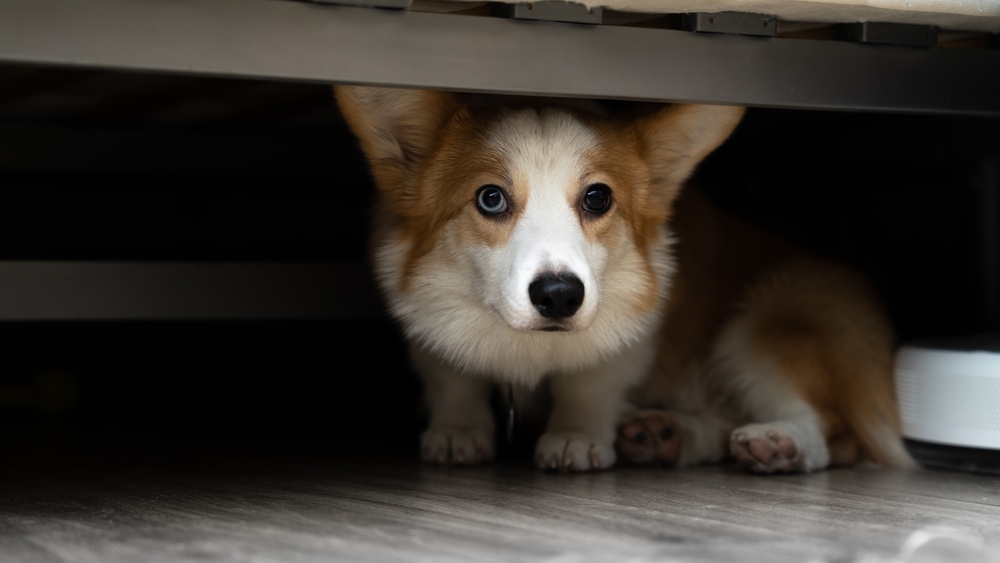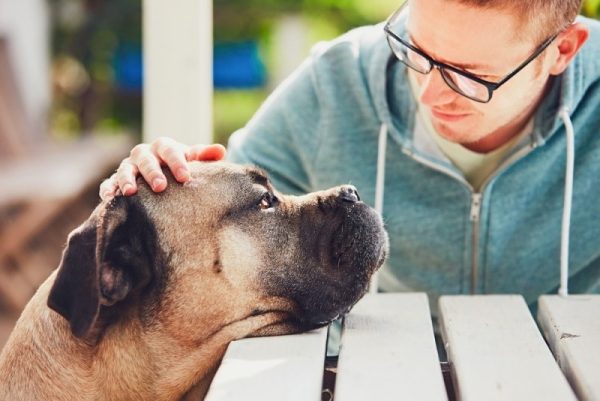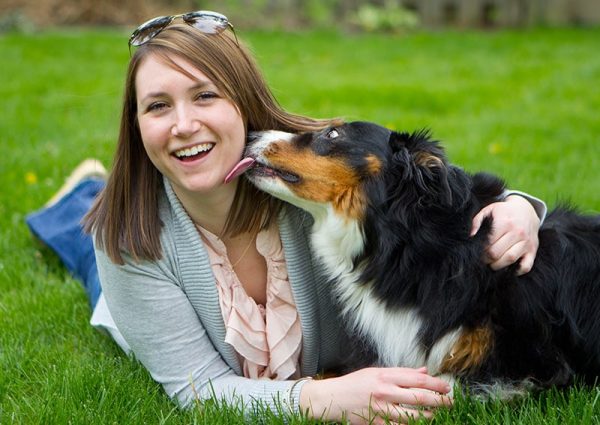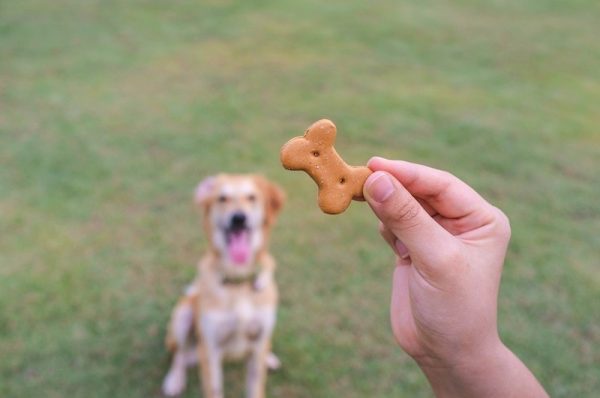Dogs sometimes go where they shouldn’t. We find them on the couch or in our bed, or they may try to sneak into off-limits rooms. Sometimes, they hide under the bed, a table, or anything else they can fit underneath, even if it seems quite snug. The first thing to consider is whether it is something new or just the way your pet acts.
Hiding can have harmless reasons that speak to your pup’s quirky side. However, it can also be a red flag for a broad spectrum of reasons. Determining what to do depends on what is triggering this behavior. That’s where you’ll find ways to help your dog.

The 5 Reasons Why Dogs Hide
1. Instinct
Our canine companions have evolved from dogs in the wild. Even though they now live very different lives, our pets may have instincts that cause them to do things like hide. Many of their wild counterparts dig dens to raise their puppies, as a den keeps everyone together and offers protection and security. If this is something your dog has done for their whole lives, it could just be their instincts coming out.
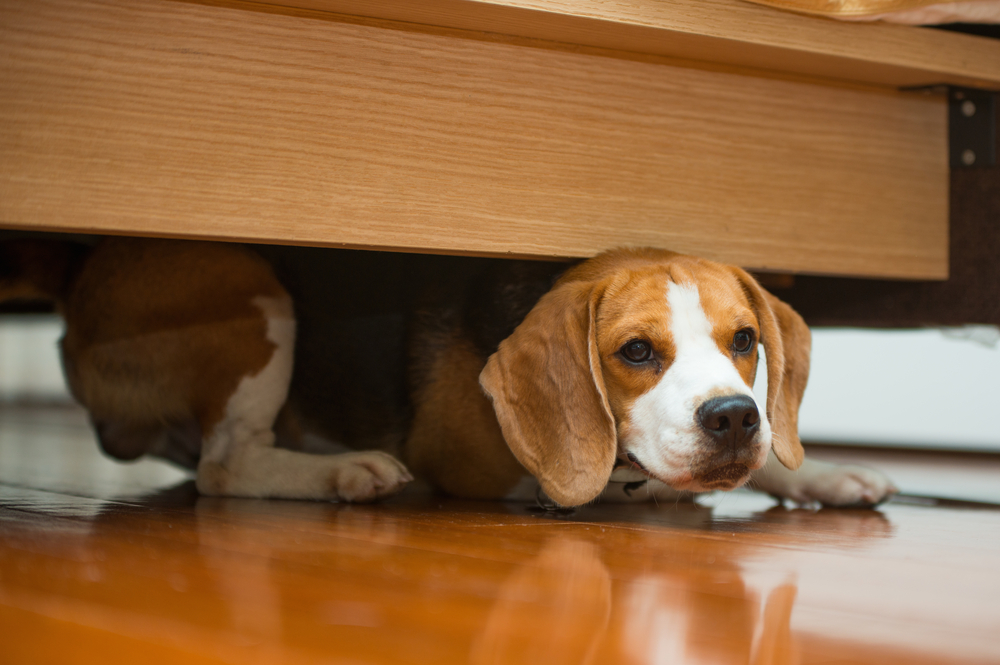
2. Fear or Anxiety
That desire to feel secure may run deep. Looking out from under a bed or outside of a cave gives the animal a decent vantage point to watch out for threats. It could be that another pet in the home, loud noises, or a young and persistent child is causing them to become anxious or fearful. Hiding under the bed may allow your pup to relax and let down its guard against unwanted attention. If you would rather not have your dog hide under your bed, consider crate training them so that they have a safe place to go to that is all their own.
If hiding under the bed is a new thing for your dog, talk to a veterinarian about how to help out with fear or anxiety. Training can help while some dogs may also need medication.
If you need to speak with a vet but can't get to one, head over to PangoVet. It's our online service where you can talk to a vet online and get the advice you need for your pet — all at an affordable price!

3. Comfortability
Another potential reason for your dog hiding under the bed may be that it’s simply comfortable. A heat vent located there can provide a warm and toasty place to snooze, especially during the colder months of the year. Your pup may also prefer hanging out someplace away from the traffic and action of your household. If it feels good, it may become a habit for your pooch. Instead of a doghouse, they use your bed. If this is something they’ve always done, it isn’t really a cause for concern. However, if it’s new, it’s still best to get them checked out by a vet.
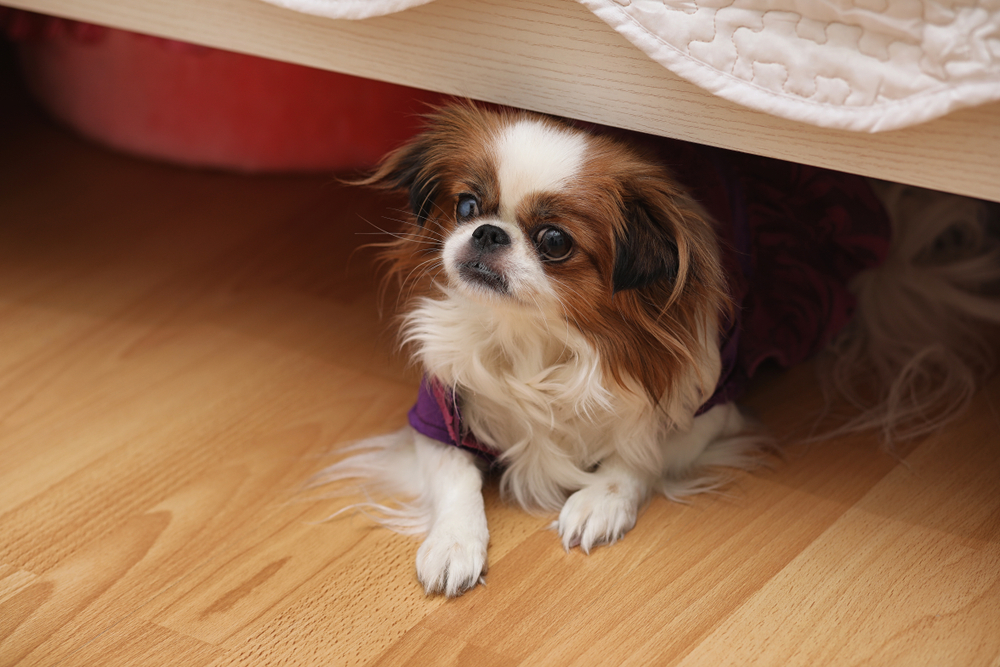
4. Change in Routine
A change in the household routine can also upset your pet. Events such as a new baby, remodeling, or a houseguest could put your pup out of sorts. If possible, it is best to acclimate your pet to any new changes very slowly, but we know that this isn’t always possible. Give your pet a safe, quiet place to decompress. If you can remove the trigger altogether, even better!
5. Resource Guarding
Another reason your pet may choose this spot is a form of aggression called resource guarding. They may bring a favorite toy or treat with them under the bed and bark to keep others away from their prize. You should discuss these behavioral issues with a vet, who may refer you to a behaviorist to manage the problem.


Medical Concerns
Hiding under the bed can be worrisome if it’s unusual for your pup. Another reason a dog would behave this way is to reduce their vulnerability if they don’t feel well. An enclosed space offers protection. It doesn’t matter what it really is; it’s the perception that counts. Of course, the behavior isn’t diagnostic. It’s merely a sign that something’s wrong. It’s not unusual if you think about it.
If you’re sick or feeling depressed, it might feel good to hide under the covers, figuratively or literally. Your pup isn’t much different when they are not feeling their best. Remember that your dog may feel sleepy if they have an illness or an injury as their body fights whatever is the cause of their discomfort.
- Loss of appetite
- Lethargy
- Disengagement
- Vomiting
- GI distress
- Excessive vocalizing

How to Handle a Dog That Hides Under the Bed
Acting quickly is essential since it’s often easier to treat a condition early rather than wait until it’s become more serious. Dogs are often an open book when it comes to noticing something amiss. If you notice any of the above signs alongside hiding under the bed, you should get your pup to the vet promptly.
Your vet will likely begin with a history to pinpoint the problem. They may then run blood work or other tests to determine why your dog is acting out of character. Medical issues could be anything from disease or an injury to accidental poisoning. The important thing is to act to get a quick resolution.
Exposing your dog to novel experiences as a puppy is essential for helping to prevent fearfulness in adults. It teaches the animal not to be scared of new things because it may mean something good, like another friend.

Final Thoughts
Hiding under the bed isn’t always a bad thing; it could just be your dog’s new favorite spot to sleep. However, it can also indicate mental or physical issues that are worth investigating. You know your pup the best. You should contact your vet if the behavior is new and accompanied by other signs. It may be nothing serious, or it may require veterinary attention.
Featured Image Credit: Alexander_Evgenyevich, Shutterstock
